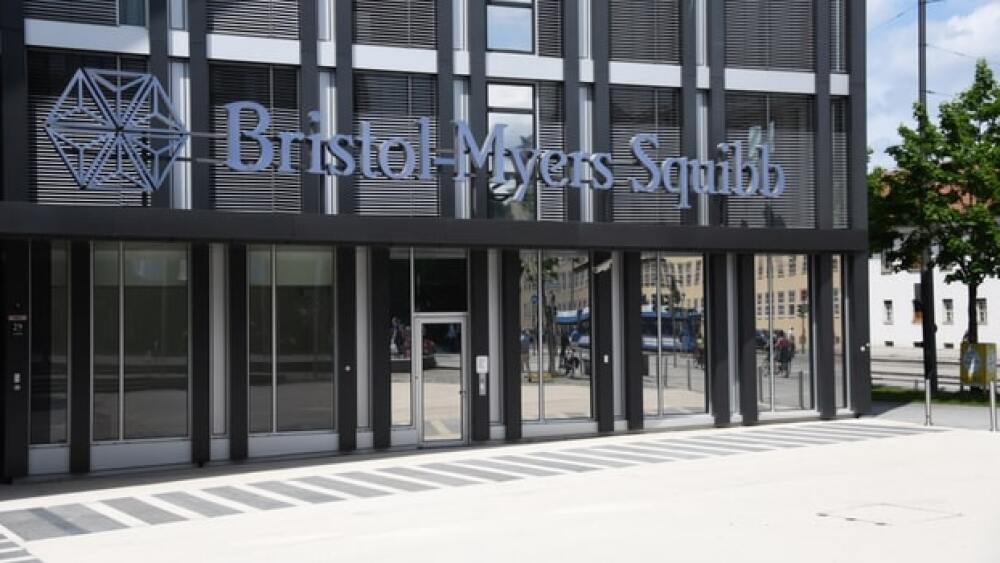BMS and Opdivo’s blockbuster checkpoint inhibitor picked up a new regulatory win after the FDA approved the cancer drug in combination with platinum-doublet chemotherapy.
Nitpicker/Shutterstock
Opdivo, Bristol Myers Squibb’s blockbuster checkpoint inhibitor, picked up a new regulatory win after the U.S. Food and Drug Administration approved the cancer drug in combination with platinum-doublet chemotherapy for adult patients with resectable non-small cell lung cancer in the neoadjuvant setting regardless of PD-L1 status.
For BMS, the approval expands the role of Opdivo-based treatment in NSCLC, which is the most common form of lung cancer. In combination with BMS’ Yervoy (ipilimumab), Opdivo is also approved as a first-line treatment for adult patients with metastatic non-small cell lung cancer (NSCLC) whose tumors express PD-L1, as well as first-line treatment of adult patients with metastatic or recurrent NSCLC with no EGFR or ALK genomic tumor aberrations.
The FDA decision was based on the Phase III CheckMate-816 trial data, which BMS said is the first positive late-stage study of an immunotherapy-based combination used before surgery for resectable NSCLC. Trial data showed that Opidvo (nivolumab) plus chemotherapy demonstrated a statistically significant improvement in event-free survival (EFS) when given prior to surgery. The study data showed a 37% reduction in the risk of progression, recurrence or death compared to chemotherapy alone.
The study also showed a median EFS of 31.6 months for the Opdivo treatment arm compared to 20.8 months for chemotherapy alone. Additionally, BMS reported that the data showed that 24% of patients treated with Opdivo plus chemotherapy achieved pathologic complete response (pCR) in comparison to 2.2% of patients treated with chemotherapy alone.
Full data from the study will be presented at the American Association for Cancer Research Annual Meeting 2022 in April.
Mark Awad, clinical director of the Lowe Center for Thoracic Oncology at Dana-Farber Cancer Institute and a study investigator for CheckMate-816, noted that patients with resectable NSCLC have a higher rate of disease recurrence. Because of that, additional treatment options are needed prior to surgery for these patients in order to improve survival chances.
“The approval of nivolumab with platinum-doublet chemotherapy marks a turning point in how we treat resectable NSCLC and it enables us to use immunotherapy and chemotherapy as neoadjuvant treatment for patients before surgery. Today’s announcement reinforces the need to increase the rates of NSCLC screening and early detection, and for patients to discuss treatment options with their providers,” Awad said in a statement.
The approval for this indication was granted under the FDA’s Real-Time Oncology Review (RTOR) pilot program. According to the FDA, that program aims to ensure safe and effective treatments are available to patients as early as possible.
While Opdivo picked up another regulatory win, rival checkpoint inhibitor Keytruda continued to flex its muscle in a Phase III study as adjuvant treatment for patients with resected stage IIB and IIC melanoma.
This morning, Merck announced that the Phase III KEYNOTE-716 study met its key secondary endpoint of distant metastasis-free survival (DMFS) following an interim data analysis. The study showed that adjuvant treatment with Keytruda demonstrated a statistically significant improvement in DMFS compared to placebo. Additionally, Merck noted that treatment with its checkpoint inhibitor continued to offer patients improvement in recurrence-free survival (RFS) compared to placebo.
The confirmation of the secondary endpoint and continued demonstration of RFS followed the FDA’s approval of Keytruda in December for this indication. To date, Keytruda has shown substantial progress in RFS and DMFS compared to placebo across resected stage IIB and stage IIC and stage III melanoma. KEYNOTE-716 full results will be presented at an upcoming medical meeting.
Scot Ebbinghaus, vice president of clinical research at Merck Research Laboratories, said patients with melanoma that has spread throughout the body have a significantly worse prognosis. The goal of adjuvant therapy is to delay disease recurrence, especially distant metastases.
“In KEYNOTE-716, adjuvant treatment with Keytruda first showed a significant improvement in recurrence-free survival and has now demonstrated a significant improvement in the time until the first diagnosis of a distant metastasis compared to placebo. The distant metastasis-free survival data from KEYNOTE-716 reinforce the evidence for Keytruda as adjuvant therapy in stage IIB and IIC melanoma,” Ebbinghaus said in a statement.
Keytruda has been approved for the adjuvant treatment of adult and pediatric patients with stage IIB, IIC or III melanoma following complete resection.
Featured Jobs on BioSpace





